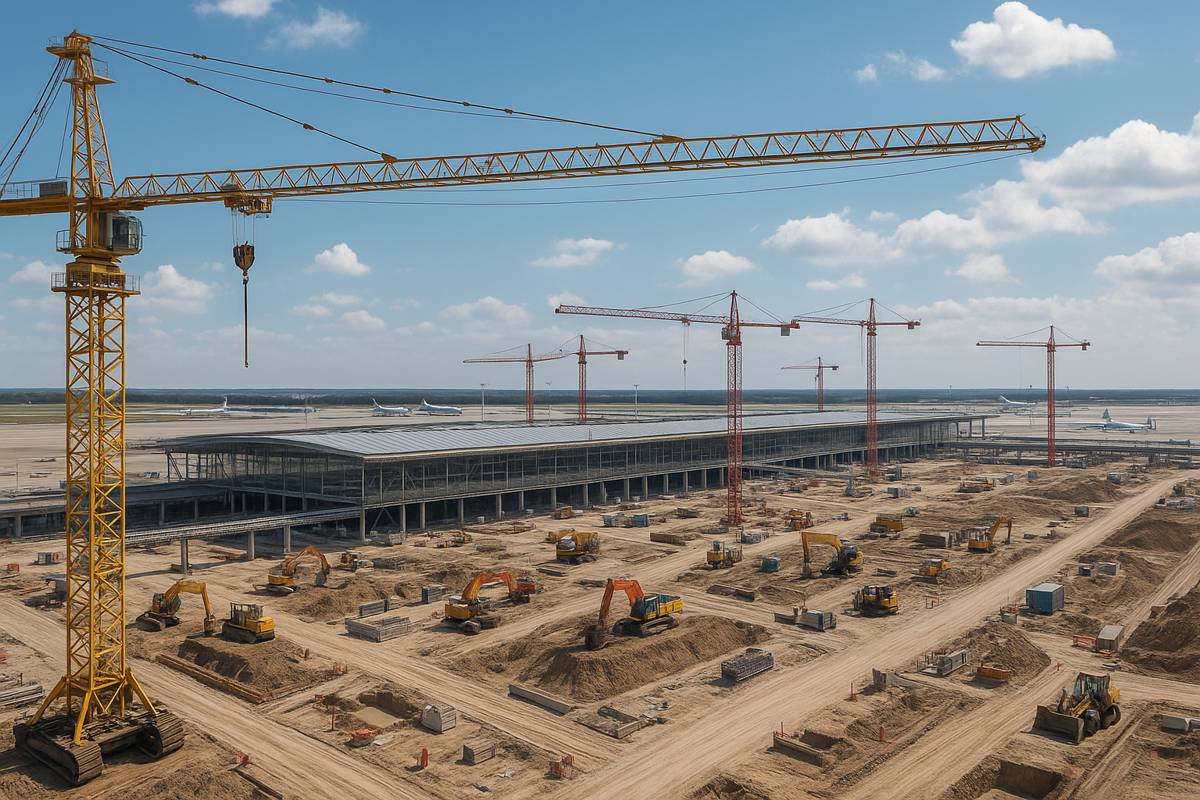A New Chapter in Skyward Ambition for Centralny Port Komunikacyjny
Centralny Port Komunikacyjny (CPK), Poland’s audacious mega‑infrastructure venture, has taken the next giant leap forward. The programme has issued a major engineering tender to appoint a General Contract Engineer (GCE), also known as the Delivery Partner—to shepherd its flagship airport project into reality.
Tenders close on 20 October 2025, and the contract is expected to be awarded in Q1 2026. The airport is envisioned to open in 2032, anchoring an integrated transport network and redefining Poland’s aviation landscape.
Scope, Schedule and Stakes
The selected GCE will function as both Project Management Consultant and Construction Manager, handling end‑to‑end oversight—from consultancy, planning and scheduling to integrating multiple design and construction contracts into a seamless, single programme.
One of the GCE’s core missions? To ensure the airport launches on time, within budget and within scope, all while rigorously evaluating the quality of proposed solutions.
Criteria That Count: Capability Meets Credentials
Not just anyone can step into these boots. CPK is seeking entities with:
- Within the last 15 years, experience as project manager on a greenfield airport (new‑build), delivered under build or design‑and‑build contracts, handling at least 20 million annual passengers.
- Strong record in delivering major infrastructure projects within Poland, hinting at preference for consortia with local partners.
- A net annual revenue of no less than PLN 500 million (approx. USD 134 million) over the past five years.
CPK’s Strategic Blueprint
CPK isn’t just another airport. Situated some 40 km south‑west of Warsaw in Baranów, it’s part of an integrated transport vision combining an international airport and a high‑speed rail network.
Plans include two initial runways and a capacity for 34 million passengers in phase one, with room to scale up to four runways and 40 million annually, or even more in future.
Key components of this mega‑project include:
- A fully integrated high‑speed rail network, making most major Polish cities reachable within 2.5 hours, and potential rail linkage to Berlin in under 3.5 hours.
- Ambitions to emerge as a major European transfer hub, with up to 40% of passengers expected to connect through CPK rather than terminate there.
- The development of an Airport City and a Cargo City, mixed‑use economic zones adjacent to the airport, blending hotels, offices, freight‑handling infrastructure and services.
- The broader CPK infrastructure portfolio has an estimated cost of around PLN 131 billion (~€30.4 billion) and includes both air and rail components.
National Growth, Global Reach
This isn’t just about soaring runways and gondolas, it’s about setting a foundation for long‑run economic growth. As CPK CEO Filip Czernicki put it: “Our aim goes beyond building a modern airport and rail network—it’s also about using the skills and experience we develop to build a foundation for long‑term national growth.”
Expect ripple effects across Poland’s economy:
- Massive job creation and local contracts, particularly if local firms are integrated via consortia.
- A boost to tax revenues, regional development and construction sector momentum.
- Strategic positioning to compete with major European hubs, drawing in transfer traffic and business activity.
A Bright Horizon Ahead
Poland’s Centralny Port Komunikacyjny is more than infrastructure, it’s an emblem of future-facing ambition, a nexus poised to redefine regional transport and economic vitality.
Selecting the right GCE is essential: it’s not just an engineering role, it’s the conductor coordinating a symphony of construction, design and logistics on a global stage.




















